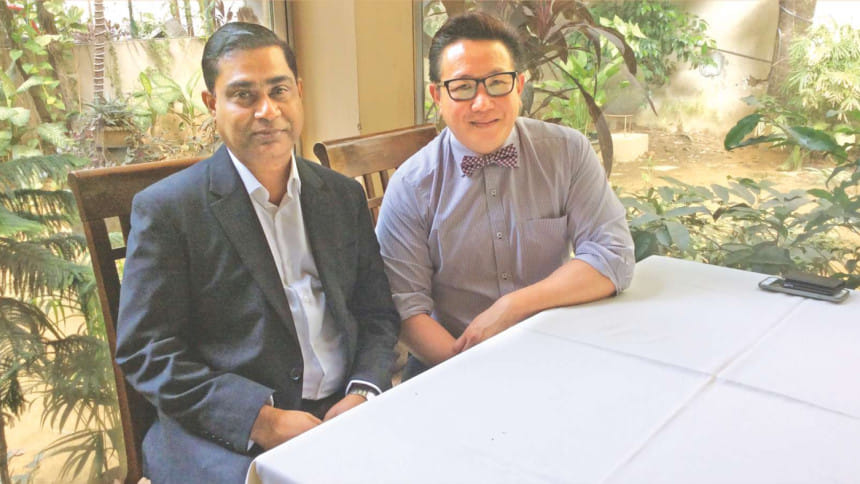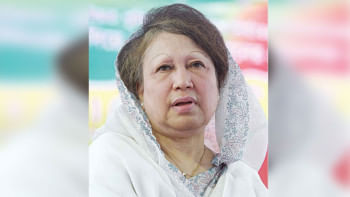Parkway expanding its regional footprint

SINGAPORE-BASED healthcare giant Parkway Pantai is fast expanding its footprint in Asia to tap into the continent's growing private healthcare market.
“We have expansion plans regionally. Our plan is to reach out to the local residents of the country our hospitals operate in,” said Anthony Lim, head of regional marketing of Parkway Hospitals.
He was in Dhaka on Saturday to get a better understanding of the healthcare system in Bangladesh, and to see how Parkway Pantai can be a part of it to extend support.
There is some room for improvement in terms of capacity and delivery in healthcare in Bangladesh, Lim added.
In Singapore, Parkway Pantai is the largest private healthcare provider and operates Mount Elizabeth Novena Hospital, Mount Elizabeth Hospital, Gleneagles Hospital and Parkway East Hospital -- all accredited by Joint Commission International.
Besides, it has about two dozen hospitals in Malaysia, India, China, the United Arab Emirates, Brunei, and Vietnam.
It will open Gleneagles Hong Kong in 2017 and two more hospitals in China's Shanghai and Chengdu in the coming years.
In a joint venture with India-based Apollo Group, Parkway recently set up Apollo Gleneagles Hospitals Kolkata, a 510-bed multispecialty hospital.
Parkway Pantai also has a 51 percent stake in Continental Hospitals, a state-of-the-art facility in Hyderabad. The hospital has a capacity of 750 beds with 250 operational beds currently.
A hospital project by Peoples Mobile Hospital in Mumbai, Gleneagles Khubchandani, will have 450 beds, mostly single suites, when the hospital begins operations later this year. It will provide specialties in heart and vascular, general surgery, orthopaedics, neurosurgery and transplants.
Lim said market potential is another reason that is driving Parkway to open hospitals in these countries.
On expansion in other markets, Lim said his group is continuously looking for opportunities in the regional markets.
“The job does not end with setting up a hospital. We have to see whether we have an adequate supply of local doctors, nurses and other staff needed to run a hospital. The entire infrastructure has to be in place to ensure that we can maintain our brand image.”
Hospital owners in Bangladesh have come to realise that it is important to provide quality services as people's expectations have changed, he said.
“There are many Bangladeshis who are ready to pay premium prices to get better healthcare services.”
People from around the world come to Singapore for healthcare services, boosted by recommendations made by people who have already visited the country and taken treatment, he said.
“The patients are the ones who give us recognition in terms of clinical outcomes and the services we provide.”
Parkway has set up patient assistance centres in 25 key cities in countries such as Indonesia, India and Russia to help overseas patients find doctors and get treatment in Singapore. It has two such centres in Dhaka and Chittagong in Bangladesh -- a country where the public healthcare system is overburdened.
About 55 percent of the hospital's patients are international; Bangladesh makes up 8 to 10 percent of them. Between 200 and 300 Bangladeshis visit Parkway Hospitals a year.
Parkway Pantai, which is fully owned by IHH Healthcare Berhad, is the second largest healthcare group in the world by market capitalisation.
It has 1,300 doctors, mostly trained at reputed hospitals and training institutes in the US and UK, allowing the hospitals to deliver quality services.
The hospital group has set up its own medical college to create qualified nurses as well. It also provides scholarships to them to study further and enrich their skills and knowledge. It has 6,000 nurses and another 4,000 staff at the four hospitals.
The hospitals also work with local doctors and hospitals in its overseas markets so patients, who have taken treatment at Parkway hospitals, are always in touch with their staff and doctors, he said.
“We work closely with the local doctors in order to create an ecosystem so patients have follow-up treatment locally when needed, instead of having to visit us again,” said Lim.
Lim, who studied business at the University of Bradford in the UK, has been with Parkway for a year now. He previously worked for hotels and airlines.

 For all latest news, follow The Daily Star's Google News channel.
For all latest news, follow The Daily Star's Google News channel. 



Comments